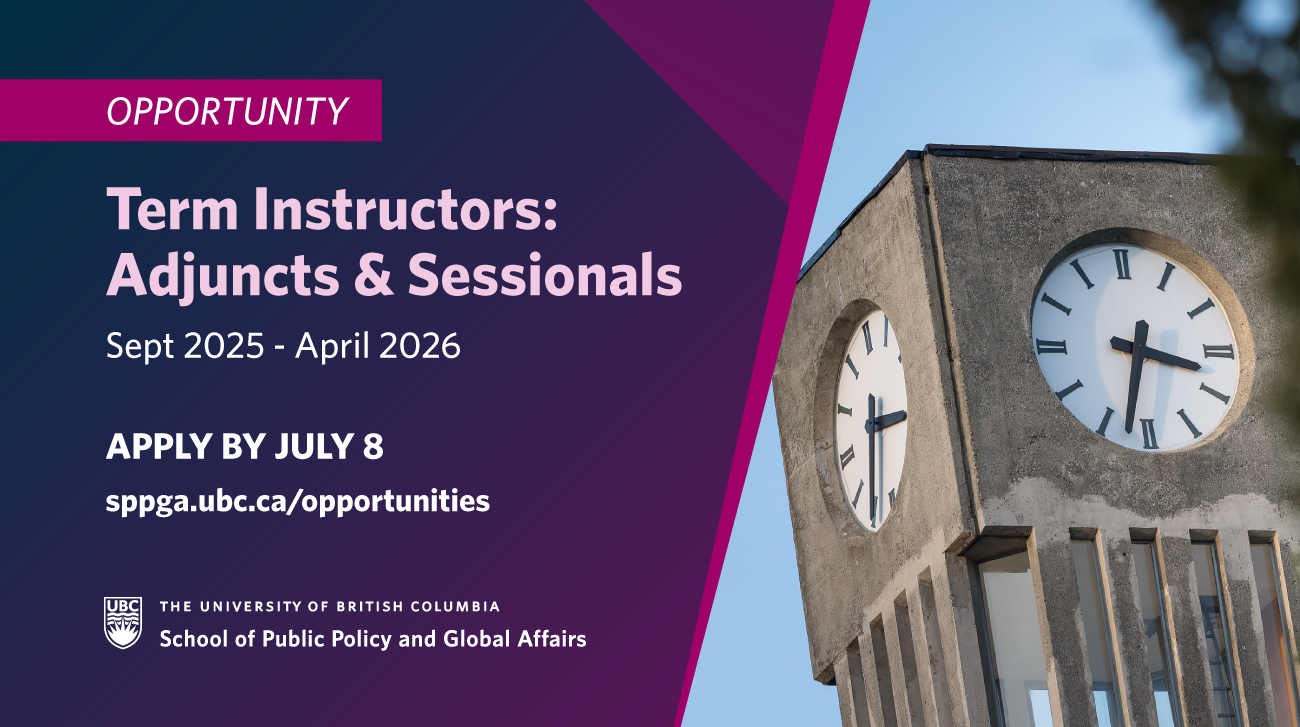UBC Master of Public Policy and Global Affairs (MPPGA) student Anoushka Chandarana recently competed in the 2021 NASPAA – Batten Simulation Competition. Learn more about her experiences in her reflection below:


MPPGA Student Anoushka Chandarana
The NASPAA – Batten Simulation Competition organized by the NASPAA (the Network of Schools of Public Policy, Affairs, and Administration) and the University of Virginia Frank Batten Public Policy School invites students from across the world to participate in a simulation competition designed to test their critical thinking, decision making and crisis management abilities. While the competition itself is hosted across eight universities in Asia, North America, and Europe, I had the privilege of representing the School of Public Policy and Global Affairs (SPPGA) at the University of British Columbia (virtually) in 2021 at the School of Public Policy at Central European University and New York University.
This year, the theme was an all too familiar one – the pandemic. To help inform our decisions, we were given a briefing report which outlined our country’s background, population, and economy. We were also provided with a policy dictionary that helped us familiarize ourselves with the public health and economic measures at our disposal. Next, we were divided into teams and tasked with the responsibility of making policy decisions for our designated countries, ranging from social distancing measures to economy shutdowns and vaccine distributions in an urgent and timely manner. Equipped with this informational toolkit, we were prepared to run the simulation (or so we believed)!
The actual competition had several components including multiple simulations and policy presentations, all of which helped us appreciate the complex nature of the pandemic as well as the tradeoffs involved in implementing different policies. For instance, although restricting travel and business helped contain the spread of the disease, these measures had to be complemented with economic stimuli to minimize the impact of a closed economy on our citizens. Even then, we were grappling with limited federal funds while focusing on procuring vaccines for our citizens. All these decisions were time-sensitive and involved quick thinking and coordination. We ran through different scenarios to perfect our balancing act, each of which facilitated our acknowledgement and understanding of the interdependence of public policies, especially in crises.
This past year, depending on our country’s political and socio-economic stability as well as the strength of the healthcare infrastructure, each of us has experienced the pandemic in different ways. Keeping this in mind, this simulation gave me the opportunity to use my own lived reality while making decisions as the leader of my designated country. Personally, running the simulation allowed me to gain insight into the ethical responsibility of decision-making, both for our country and while framing the international response. Interestingly, I was also able to account for ethno-racial discrimination in the policy implementation process while making our final presentations.
Through this competition, I have been able to apply my policymaking skillset to real-world complex problems that are continuously evolving. Apart from having to draw from different knowledge sets, this opportunity has helped me meaningfully evaluate my ability to cooperate, coordinate and negotiate both within and as a team in high-pressure situations.
I am immensely grateful to the staff and faculty at SPPGA at UBC for selecting me to represent the school in this competition. Their constant support and encouragement have helped me every step of the way. I would also like to thank the NASPAA-Batten team for making this a seamless virtual experience.
I would definitely recommend MPPGA students to participate in this simulation next year, and I’d be happy to help in any way I can. Feel free to reach out in case anyone has any questions!
– Anoushka Chandarana, Student, Master of Public Policy and Global Affairs, UBC


